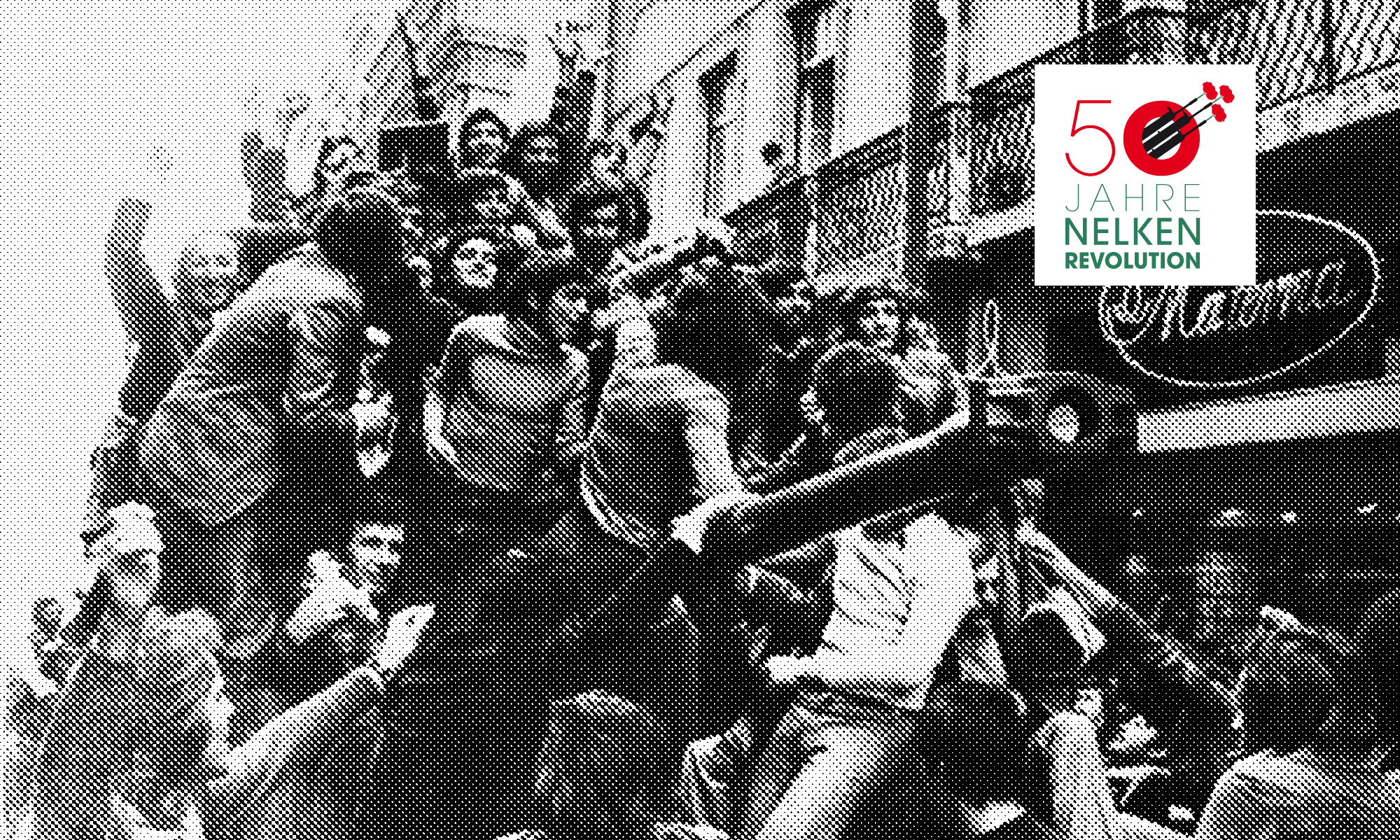On 11 March 1975, another coup by Spinola, right-wing military leaders and big capitalists was repelled. As a result, the left within the MFA was strengthened. Together with the now Fourth Provisional Government, again under Vasco Gonçalves, they wanted to break the economic and political influence of the oligarchy.
Large parts of the population, neighbourhood committees, workers‘ commissions, trade unions and left-wing parties supported this policy with mass marches and drove it forward with company and land occupations.
The government nationalised banks, insurance companies and key industries – a total of 38% of the capital of all Portuguese companies. International corporations and small companies remained untouched. The government launched an agricultural reform and introduced pay for the unemployed, sick leave, Christmas bonuses and holiday pay, among other things. For the first time, there was a prospect of social security for the working masses.
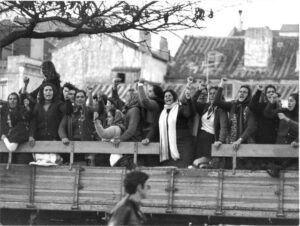
Cooperative 1st May: „We are revolutionary workers and not farmers. We don’t want to become landowners.“ Agricultural workers in the southern Alentejo on their way to defend the agrarian reform.
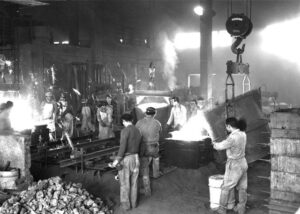
Siderurgia steelworks, one of 245 nationalised companies, including banks, insurance companies, electricity plants, chemical and metal companies, cellulose manufacturers, beverage and tobacco factories, mining, fishing and haulage companies, shipping lines, airlines, oil, radio and television companies, publishing houses and printeries. A further 1048 companies, abandoned or sabotaged by their owners, were occupied and placed under state trusteeship or self-administered.
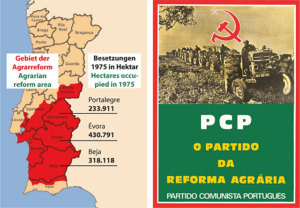
The rural proletariat occupied 1.16 million hectares of large landholdings, formed 550 Unidades Colectivas da Producão and created 72,000 jobs, legalised by the most radical and fastest agrarian reform ever seen in Europe. It included the expropriation of large landowners, but also support for small farms.
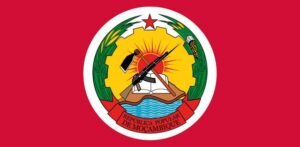
National coat of arms of the People’s Republic of Mozambique (1975-1982). Under the Gonçalves government, Angola, Mozambique, Guinea-Bissau, Cape Verde, São Tomé and Príncipe became independent by the end of 1975. Some of these countries had to endure decades of civil war – also fuelled by the West.
Images
Klaus Steiniger
Estúdio Horácio Novais, 1930-1980. CC BY-NC-ND 2.0 www.flickr.com/photos/biblarte/14707132955/in/album-72157622167274800/
TUBS, commons.wikimedia.org, Portugal,_administrative_divisions_-_de_-_colored.svg, bearbeitet, CC BY-SA 3.0
Thommy, commons.wikimedia.org, Presidential_Standard_of_Mozambique_(1975-1982).svg, CC BY-SA 1.0
